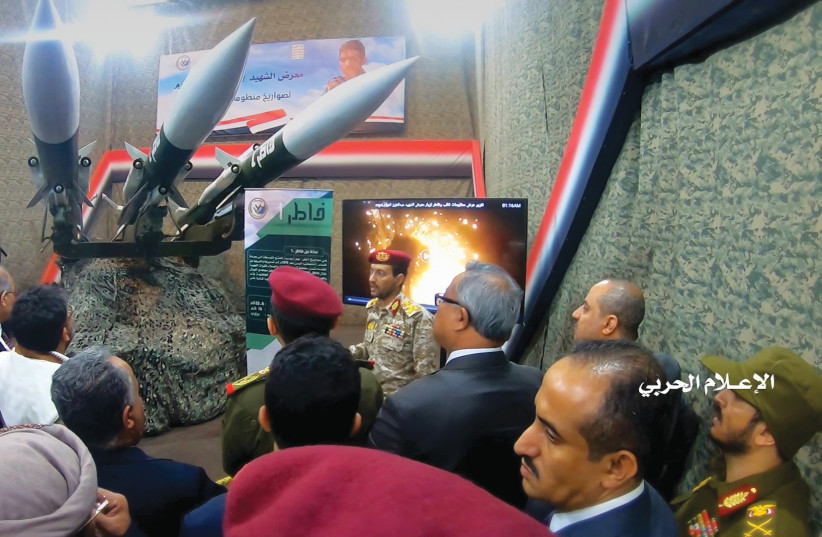For over a month now, the Western world has been very focused on Russia’s war on Ukraine. That makes sense for many reasons, among them that Ukraine is the EU and NATO’s next-door neighbor and that Russia has nuclear weapons and a very large – though, as it turns out, poorly-trained – army.
Though American officials have told their Israeli counterparts that they “know how to walk and chew gum,” a crisis as big as Ukraine was inevitably going to distract from what Israel and moderate Sunni states view as their biggest threat: Iran.
The Iranian threat has not subsided just because Russia invaded Ukraine.
Negotiations between world powers and Iran to revive the 2015 Iran deal have been paused for weeks now, partly because of sanctions on Russia related to the Ukraine war, but mostly because of Iranian demands from the US, which Washington is seeking to resolve.
Meanwhile, Iran continues advancing its nuclear program, converting its highly enriched uranium into material that is hard to dilute or move elsewhere, and its proxies, the Houthis, are continuing to attack the UAE and Saudi Arabia.

The UAE and Saudi Arabia are so disappointed in the American response to Houthi attacks – which escalated before Russia invaded Ukraine – that their leaders snubbed US President Joe Biden when he wanted help dealing with a possible energy crisis related to sanctions on Moscow and US Secretary of State Antony Blinken canceled a planned visit to Abu Dhabi and Riyadh.
While the Saudis and Emiratis play bad cop trying to direct Washington’s attention back to the Iranian threat, Foreign Minister Yair Lapid had an idea of how to be the good cop: A historic summit, bringing together Israel, Arab states and the US to show a united front for regional stability and peace – which everyone knows is code for “not Iran” – in Israel.
The Negev Summit came together quickly, in less than a week, taking place during Blinken’s visit, which had been planned for nearly a month, and after Prime Minister Naftali Bennett met with Egyptian President Abdel Fatah el-Sisi and Crown Prince of Abu Dhabi Mohammed bin Zayed. That meeting included discussions of working together on defense against Iran, and Lapid thought that the rest of the countries with which Israel has peace should join that conversation. Bahrain and Morocco quickly joined in. Jordan did not, officially because of a scheduling issue, but probably because canceling meetings with the Palestinian leadership for a summit with Israel would not go over well at home.
Almost immediately after the Arab foreign ministers’ arrival in Sde Boker, sources close to Lapid said there were already discussions of “a regional security architecture that will build deterrence against threats from the air and sea.”
The historic nature of the foreign ministers of four Arab gathering in Israel is something that would be hard for Washington to ignore, and Blinken welcomed it and plans to play a central role.
Blinken called the Negev Summit something that “would have been unthinkable just a few years ago,” and said the US is committed to expanding cooperation through the Abraham Accords.
The secretary of state will certainly hear a lot from all five foreign ministers concerned about the American position on Tehran, even if he continues to reassure them that the US opposes a nuclear Iran, and it seemed like he knew it.
Hitting on the exact reason and theme of the Negev Summit, he said that “a more stable, integrated region gives us a stronger foundation for addressing shared threats as these, and achieving shared opportunities.”
A historic meeting of Arab and Israeli foreign ministers is one way to bring Washington’s attention back to the Iranian threat. Whether it will still work after Blinken returns to Foggy Bottom remains to be seen.
